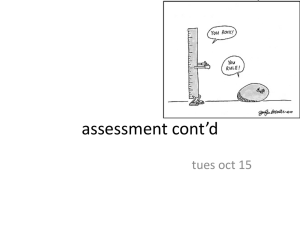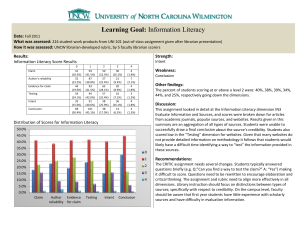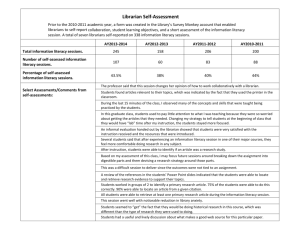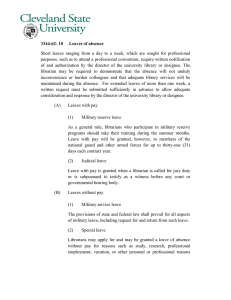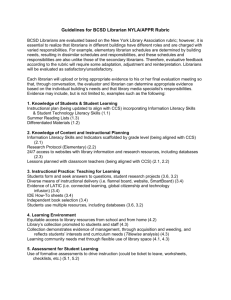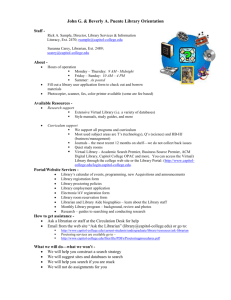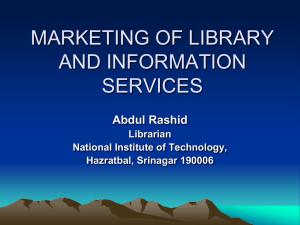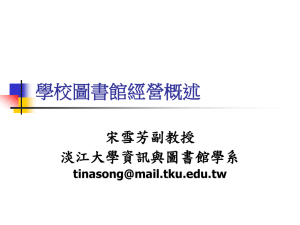Teacher Librarian Role Statement | Information Literacy
advertisement
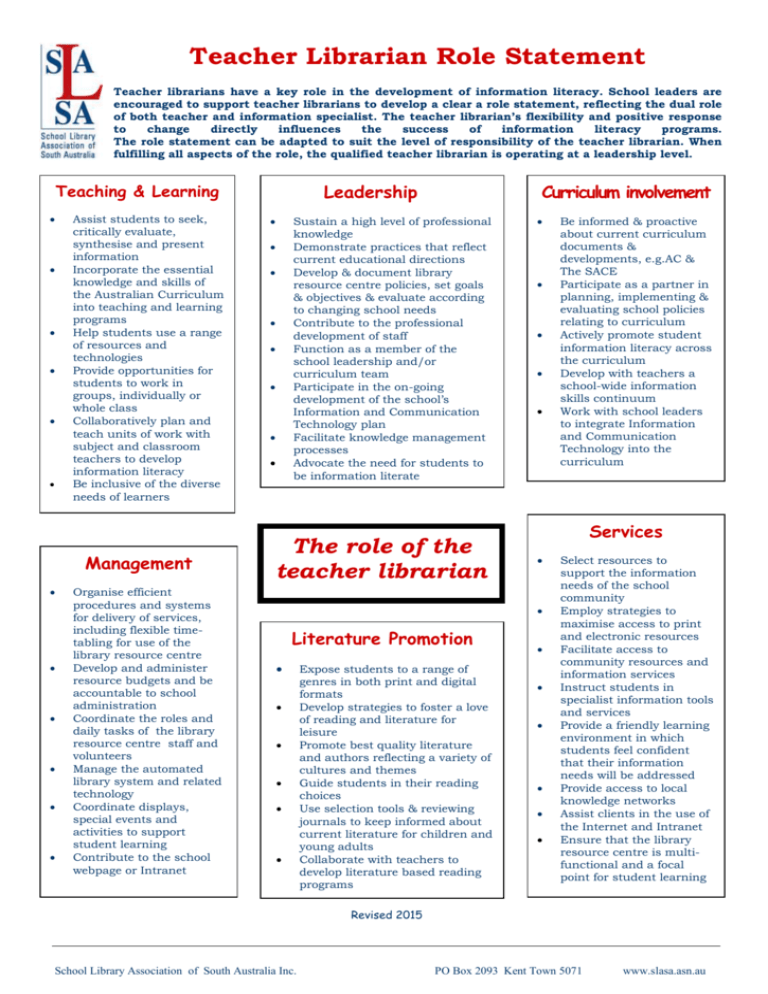
Teacher Librarian Role Statement Teacher librarians have a key role in the development of information literacy. School leaders are encouraged to support teacher librarians to develop a clear a role statement, reflecting the dual role of both teacher and information specialist. The teacher librarian’s flexibility and positive response to change directly influences the success of information literacy programs. The role statement can be adapted to suit the level of responsibility of the teacher librarian. When fulfilling all aspects of the role, the qualified teacher librarian is operating at a leadership level. Leadership Teaching & Learning Assist students to seek, critically evaluate, synthesise and present information Incorporate the essential knowledge and skills of the Australian Curriculum into teaching and learning programs Help students use a range of resources and technologies Provide opportunities for students to work in groups, individually or whole class Collaboratively plan and teach units of work with subject and classroom teachers to develop information literacy Be inclusive of the diverse needs of learners Management Organise efficient procedures and systems for delivery of services, including flexible timetabling for use of the library resource centre Develop and administer resource budgets and be accountable to school administration Coordinate the roles and daily tasks of the library resource centre staff and volunteers Manage the automated library system and related technology Coordinate displays, special events and activities to support student learning Contribute to the school webpage or Intranet Curriculum involvement Sustain a high level of professional knowledge Demonstrate practices that reflect current educational directions Develop & document library resource centre policies, set goals & objectives & evaluate according to changing school needs Contribute to the professional development of staff Function as a member of the school leadership and/or curriculum team Participate in the on-going development of the school’s Information and Communication Technology plan Facilitate knowledge management processes Advocate the need for students to be information literate The role of the teacher librarian Services Literature Promotion Expose students to a range of genres in both print and digital formats Develop strategies to foster a love of reading and literature for leisure Promote best quality literature and authors reflecting a variety of cultures and themes Guide students in their reading choices Use selection tools & reviewing journals to keep informed about current literature for children and young adults Collaborate with teachers to develop literature based reading programs Be informed & proactive about current curriculum documents & developments, e.g.AC & The SACE Participate as a partner in planning, implementing & evaluating school policies relating to curriculum Actively promote student information literacy across the curriculum Develop with teachers a school-wide information skills continuum Work with school leaders to integrate Information and Communication Technology into the curriculum Select resources to support the information needs of the school community Employ strategies to maximise access to print and electronic resources Facilitate access to community resources and information services Instruct students in specialist information tools and services Provide a friendly learning environment in which students feel confident that their information needs will be addressed Provide access to local knowledge networks Assist clients in the use of the Internet and Intranet Ensure that the library resource centre is multifunctional and a focal point for student learning o Revised 2015 School Library Association of South Australia Inc. PO Box 2093 Kent Town 5071 W o r k www.slasa.asn.au c
